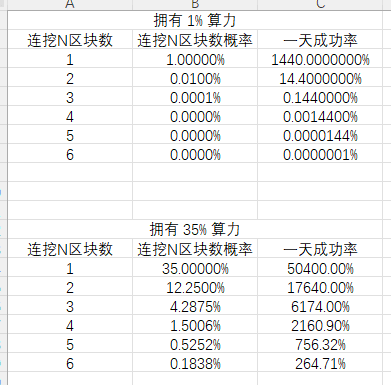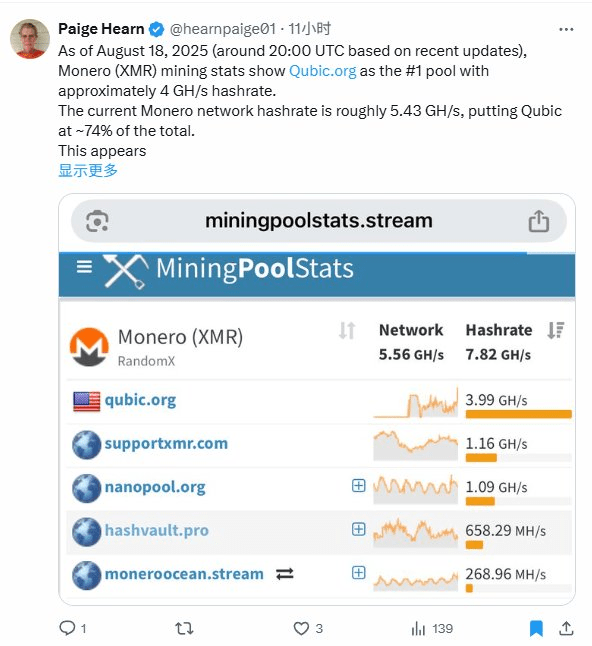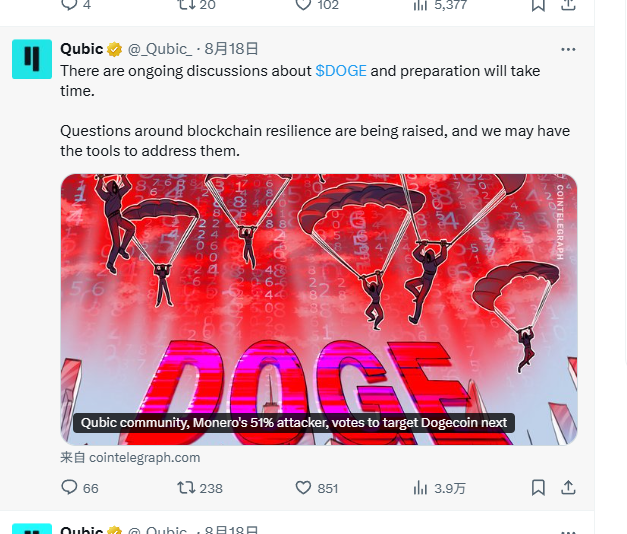Observation and personal opinion from Nothing Research Partner 0x_Todd; the following content does not constitute any investment advice.
Since last week when $XMR was officially announced by Qubic to have suffered a 51% attack, the community has drawn several conclusions in retrospect:
1. During the so-called 51% attack by Qubic last week, they did not actually possess 51% of the hash power; they only temporarily reached around 35%.
2. Qubic mined 6 XMR blocks in succession, suspected to be selfish mining.
Selfish mining refers to the practice of mining blocks but withholding them from being published, waiting until they accumulate six before releasing them all at once to form the longest chain. This causes the five blocks mined by honest miners (the second longest chain) to become invalid, enabling double spending.

In fact, even if I only have 1% of the hash power, theoretically I could mine 6 blocks in a row, although the probability is very low, whereas 35% hash power has a much larger probability.

I did a quick calculation. This is just a matter of natural probability; with Monero producing 1440 blocks a day, a 35% hash rate has a mathematical expectation of successfully attacking 2.6 times per day. This does not even account for the boost from selfish mining, which would make it even higher; otherwise, Qubic might not be willing to spend money to temporarily rent hash power to impact 6 blocks.
Why is this model called selfish? It's because when withholding blocks, to ensure the success rate, they often do not include transactions, resulting in many empty blocks, wasting block space.
Back to the main point, and Qubic did not actually double spend; many exchanges require 10 block confirmations for XMR deposits, so they had no real incentive to attack.
So you can understand that Qubic neither had 51% hash power nor conducted a 51% attack; they merely showcased a shallow performance and then released a press release claiming they had completed a 51% attack.
But why is it called psychological warfare?
Because once the event broke, many miners surprisingly surrendered and really joined the Qubic mining pool, causing Qubic's hash power to actually exceed 50% as of yesterday.

So this is not a hash power battle but a psychological battle.
This is a form of deterrence against miners—
If you do not join Qubic's mining pool, then the blocks you mine in the future might become invalid and affect your earnings; if you join, although it is helping the oppressor, you might not only incur losses but could also double mine.
Not all miners are tough; many still need to consider the economics.
Immediately after, they announced their next target is Dogecoin. However, I believe that since Dogecoin is based on Litecoin mining machines, which have ASICs, it might not be that simple, but they are experts at psychological warfare.
So this announcement itself could be a new form of psychological warfare.

Breathtaking, this is called 'Fake it till you make it'; it's hard to translate, but literally it means: 'Pretend to be impressive until you actually become impressive.'



